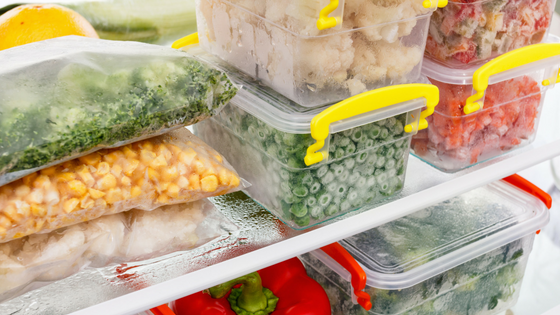Proper nutrition is essential for more than maintaining good health. In addition to promoting physical well-being, healthy food choices have an impact on mood and energy levels, making nutrition vital to overall success in any endeavor.
For traveling medical professionals, sticking to healthy choices on busy days can be a difficult task. These tips offer advice on choosing nutritious foods and planning meals while on the go.
Stay healthy year round and make meal planning a breeze with these tips for traveling medical professionals.
Find Healthy Meals
Mapping out meals takes a measure of research and self-awareness because all bodies are different (and thus, their nutritional needs vary).
The concept, known as personalized nutrition, is vital to meal planning and allows individuals to select the best foods for their body type, level of physical activity, etc.
By knowing what they should eat and how often they should eat, individuals can then begin the process of meal planning to aid in maintaining their nutritional needs.
Plan the Week
Planning meals weekly simplifies the entire process of eating healthy. By mapping meals week by week, busy professionals can ensure they have all the ingredients to prepare more nutritious options, and they won’t have to stress over what they’ll be eating from day to day. Also, consider creating a list of your favorite recipes so they are easy to find. This will help you craft your weekly shopping lists.
Beyond that, meal planning helps circumvent the temptations (namely, ordering quick and easy takeout) that come when meals are handled at the “spur of the moment.”
Utilize the Freezer
When it comes to strategies that maximize the effectiveness of meal planning, utilizing the freezer is an invaluable one. With this ubiquitous tool, planners can cook multiple meals in one go, freezing them for future use and saving both time and money (for example, preparing extra batches of sauce to be used with spaghetti down the line).

Cook and Pack All Meals & Snacks
When putting meal planning into practice, the best strategy, after deciding upon a list of meals for the week, is to purchase all necessary ingredients and get straight to cooking after returning home. Once complete, remember to pack those meals in preparation for taking to work.
This enables meal planners to control portion sizes, keep a supply of food during their week, and, above all else, avoid unhealthy options while sticking to nutritious ones (We recently gave out YETI coolers to some of our travelers, and these coolers proved quite useful for carrying meals and snacks about).
Drink Enough Water
Medical professionals, particularly those engaging in frequent healthcare travel, need to stay as close to their peak as possible in regards to energy levels, brain function and physical performance. Drinking ample amounts of water aids in this goal, and it should not be overlooked. Staff members should make this activity a habit and always ensure they include it in their meal plan.
Make It Fun With Theme Weeks
Eating the same food time and again is boring. To help maintain their interest in meal planning and eating healthy, on-the-go professionals should mix things up by incorporating some innovative theme-based choices — such as Asian veggie dishes or Mexican bowls — when the opportunity presents itself.
Check the Weather
How can the weather play a part in meal planning? It’s always shifting, and the forecast for a particular day can dictate what meals might be most appropriate. A cold day, for instance, may call for soup, while a sunnier one would be the time for a salad.
Wrapping Things Up
Meal planning can serve as a gateway to healthier nutritional choices, so it’s an option busy medical staff should investigate further if they want to optimize their health and well-being. For those interested in delving deeper into the fascinating world of healthcare travel and working with Triage, don’t hesitate to contact us to learn more.